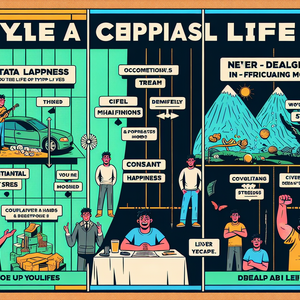Empathy as a Superpower: The New Leadership Imperative

For much of history, leadership was viewed as a top-down exercise, characterized by authority, control, and a focus on results above all else. However, as the global landscape has shifted, so have the expectations placed upon leaders. Employees now seek leaders who are not only competent but also compassionate—individuals who understand their challenges, value their contributions, and prioritize their well-being. Several factors have driven the rise of empathy as a key leadership trait, including technological disruption, the pandemic’s legacy, generational expectations, and economic volatility.
How Empathy Transforms Leadership
Empathy is not about being overly accommodating or prioritizing emotions at the expense of results. Rather, it is about understanding and addressing the needs of others in a way that benefits individuals and the organization as a whole. Empathy transforms leadership by building trust, enhancing communication, fostering innovation, and navigating conflict. Examples include Satya Nadella’s leadership at Microsoft, Jacinda Ardern’s empathetic communication, and Google’s focus on psychological safety.
Practical Strategies for Leading with Empathy
Empathy is not an innate trait—it is a skill that can be cultivated through intentional practice and self-awareness. Leaders can develop empathy through active listening, practicing perspective-taking, being vulnerable, checking in regularly, and investing in emotional intelligence training. These strategies enable leaders to connect with their teams and lead effectively.
The Ripple Effect of Empathy
The benefits of empathetic leadership extend beyond individual relationships, profoundly shaping the culture and success of organizations. Companies led by empathetic leaders often experience higher employee engagement, lower turnover rates, stronger resilience, and improved business performance. Empathy fosters a sense of belonging, trust, and open communication, which are critical for organizational success.
As the world becomes increasingly complex and interconnected, empathy has emerged as a defining trait of successful leadership. Far from being a 'soft' or secondary skill, empathy is a superpower that enables leaders to build trust, foster innovation, and navigate challenges with grace and resilience. By embracing empathy, today’s leaders can inspire their teams to achieve extraordinary results while setting a new standard for what it means to lead in the 21st century.
Chief People Officer (CPO)
Google, Salesforce, Deloitte
Core Responsibilities
Oversee organizational culture and ensure alignment with company values, focusing on employee well-being and inclusivity.
Develop and implement strategies for recruitment, retention, and professional development, emphasizing empathy-driven leadership.
Lead initiatives to address mental health, diversity, and equity in the workplace.
Key Skills & Qualifications
Proven expertise in human resources and organizational development.
High emotional intelligence and experience managing culture transformation.
Employee Experience Manager
LinkedIn, HubSpot, Airbnb
Core Responsibilities
Design and implement programs that enhance employee satisfaction and engagement, such as flexible work policies and wellness initiatives.
Regularly gather feedback through surveys and one-on-one interactions to address team concerns with empathy and proactivity.
Collaborate with leadership to foster a psychologically safe environment that promotes innovation and trust.
Key Skills & Qualifications
Expertise in employee engagement tools and HR analytics.
Strong communication skills with a focus on active listening and problem-solving.
Organizational Development Consultant
McKinsey & Company, Accenture
Core Responsibilities
Partner with leaders to assess company culture and develop strategies for improved team dynamics, trust-building, and inclusivity.
Facilitate leadership training on emotional intelligence, conflict resolution, and empathy in decision-making.
Guide organizations through change management processes, focusing on minimizing employee stress and resistance to change.
Key Skills & Qualifications
Experience in change management, executive coaching, and team-building frameworks.
Ability to analyze workplace challenges and offer innovative solutions.
Diversity, Equity, and Inclusion (DEI) Program Manager
Netflix, Microsoft
Core Responsibilities
Create and oversee initiatives to promote diversity, equity, and inclusion within the workplace, ensuring alignment with company goals.
Foster open dialogues and workshops on cultural awareness, bias reduction, and empathetic leadership.
Measure the impact of DEI programs through qualitative and quantitative metrics, adapting strategies as needed.
Key Skills & Qualifications
Deep knowledge of DEI principles and relevant legal policies.
Strong facilitation skills and experience working with diverse employee groups.
Leadership Development Coach
BetterUp, Korn Ferry
Core Responsibilities
Provide one-on-one coaching to executives and managers, focusing on developing empathy, emotional intelligence, and inclusive leadership skills.
Design and deliver training in areas such as active listening, conflict resolution, and managing hybrid teams effectively.
Help leaders navigate challenges like economic uncertainty, team burnout, and organizational change with compassion and strategic acumen.
Key Skills & Qualifications
Certification in leadership coaching or emotional intelligence frameworks (e.g., EQ-i 2.0, ICF).
Proven track record of working with C-suite executives or senior managers.


